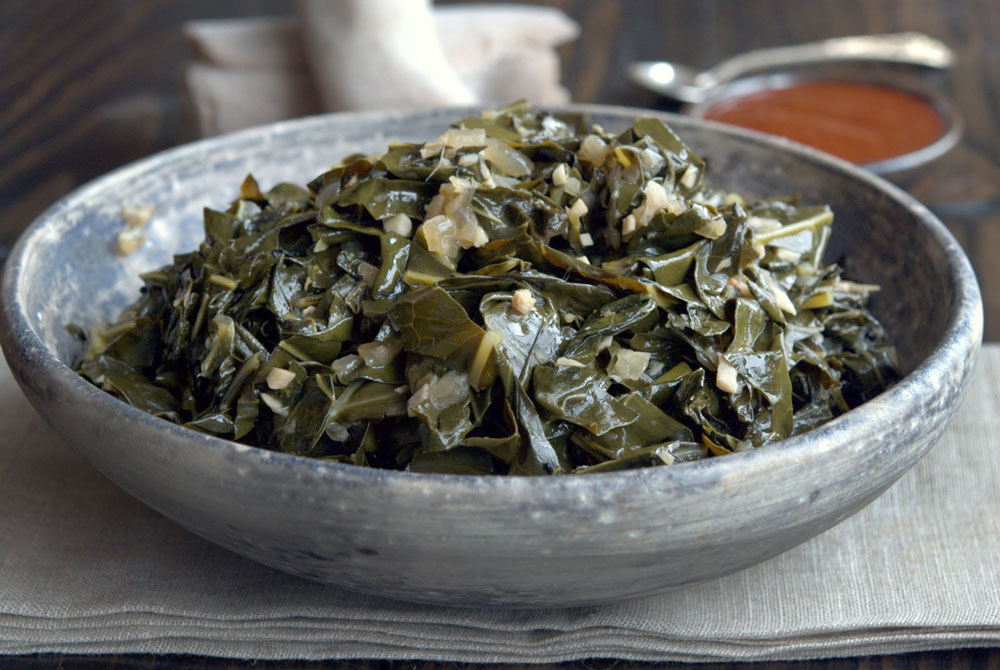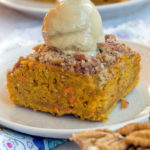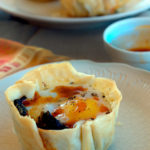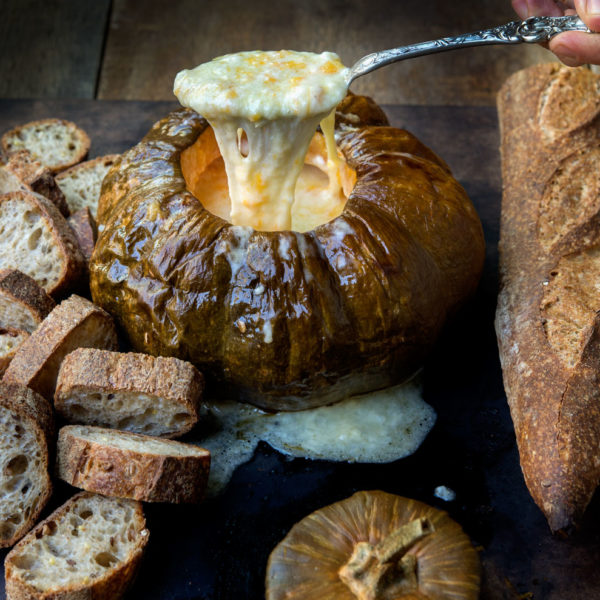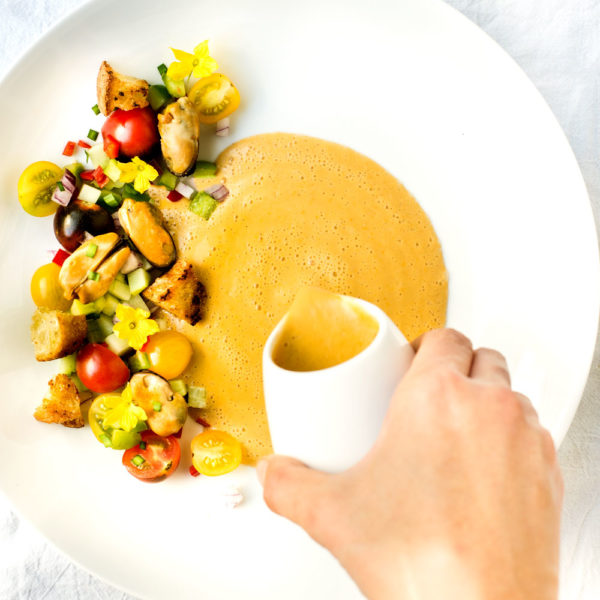Nine times out of ten when I go out for Ethiopian, I get the vegetarian sampler, typically, red lentils (miser wot), yellow split peas (kik atecha), and a double order of Ethiopian collard greens (gomen). Always satisfying and pleasantly fills my belly, though the lamb dishes are really good too. All served on top of a spongy sour bread called injera (traditionally made from the ancient grain, Teff), which you pick up with your fingers and use to scoop up your food (who doesn’t like to get a bit messy and eat with their hands from time to time?)
And, I always ask for a big bowl of awaze with my meal (along with a few refills during the course of the meal), which always sparks a few comments like, more awaze? oh, you like it hot! Awaze (pronounced a-wa-ze), a slightly firery Ethiopian sauce made from the spice mixture berbere, along with a few other ingredients (keep reading; the recipe for awaze follows). This particular recipe for awaze, courtesy of a our friend Ashi from [the former] Queen of Sheba Cafe in Chicago. Unfortunately, I just read that Sheba closed (so sad); hopefully you have moved on to bigger and better things.
Always found that place a bit quirky. A bit of a hole in the wall, but the food was consistently good; although, they would run out of dishes quite often, and most of the time they weren’t that busy? And, it was not uncommon to see a few gentlemen walk in (often beer in hand) and head straight downstairs, or pop up for some beer and then quickly disappear again (men’s social club? Ethiopian mob?? I’s Chicago after all, better known for Michael Jordan and Al Capone). I never had the courage to ask what was going on; oh well, I guess it will forever remain a mystery.
I’m not a huge fan of boiled “mushy” vegetables. However, collards are a bit tougher, hardier green, and can withstand a bit of braising. This dish calls for a few unusual spices (like nigella seeds) and the Ethiopian spice mixture known as berbere, which may take some searching. For those of you in the DC area you can find berbere here and in Chi-town you can find some here. The rest of the spices can be found at spice shops like here or here and Indian grocery stores like here.
Clockwise from upper left: ground black cardamom, fenugreek seeds, berbere, and nigella seeds.
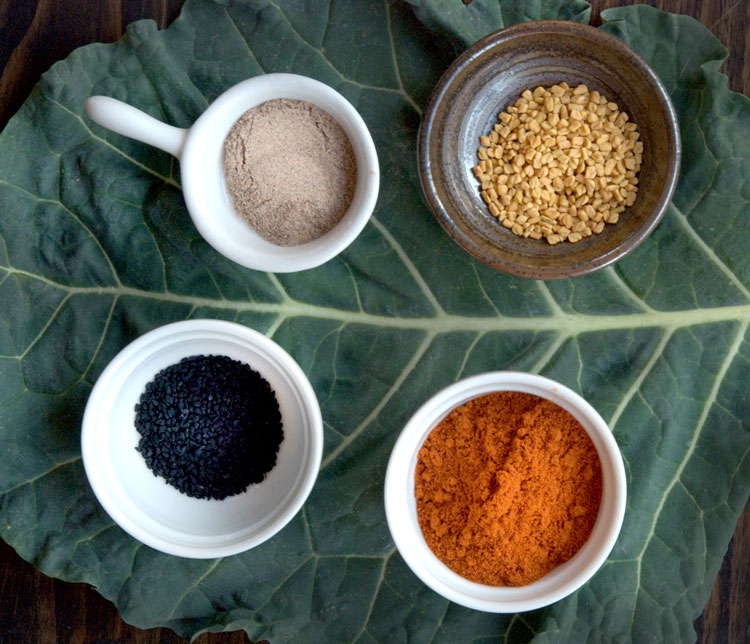
A chile and spice blend used to season many Ethiopian dishes. There are many variations of spices that make up this blend, including fenugreek, ground chiles, paprika, ginger powder, onion powder, ground cardamom, ground nutmeg, garlic powder, ground cloves, ground cinnamon, and ground allspice.
Tiny, black, smoky flavored seeds found atop Jewish rye bread in New York. Used in Armenia, Lebanon, Israel, and India. Also referred to as black caraway or kalonji, nigella seeds, used in garam masala.
Cultivated since ancient times, fenugreek has a sweet, savory flavor that is prized in the Middle East and Northern Africa. Fenugreek is best known in America as an indispensable ingredient in the curry dishes of Southern India.
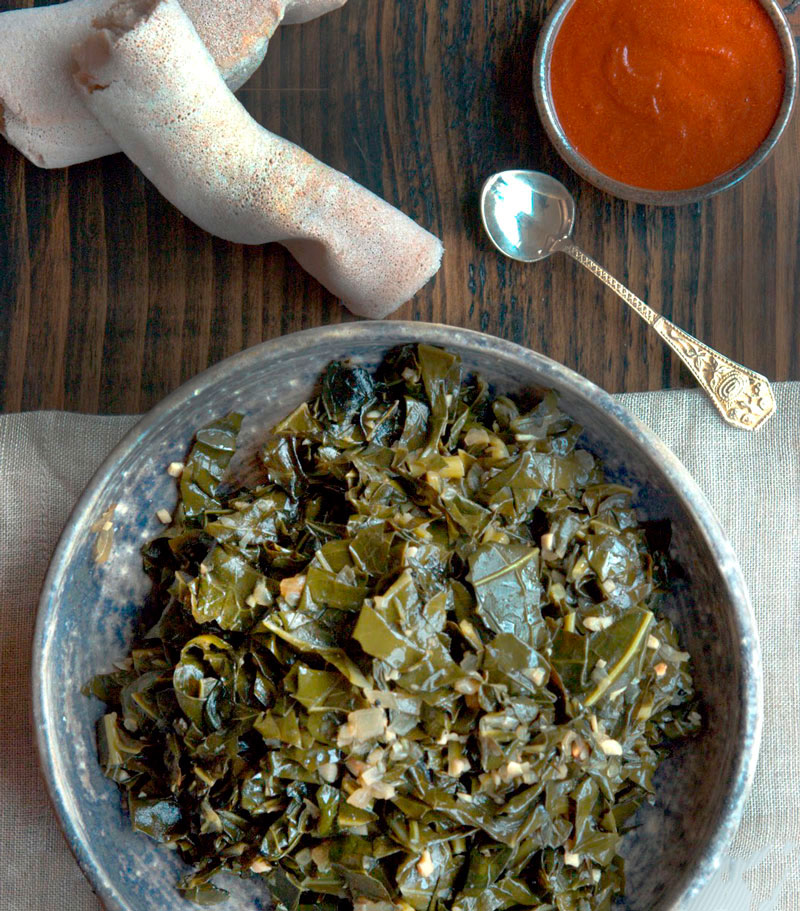
Gomen
1⁄8 teaspoon ground black cardamom
1⁄8 teaspoon ground fenugreek (used a spice/coffee grinder)
1⁄8 teaspoon nigella seeds
1 large onion, minced
3 cloves garlic, minced
2 to 4 Thai chiles, minced (2 for mild; 4 for medium heat)
1 1-inch piece ginger, peeled and grated
1 1⁄2 pounds collard greens, stemmed and cut crosswise into 1⁄4-inch strips
Sea salt and fresh ground black pepper, to taste
Heat the butter in a large pot over medium heat. Add the cardamom, fenugreek, and nigella and cook, stirring often, until fragrant, 1 to 2 minutes. Increase the heat to medium-high and add the oil. Add the onions and cook, stirring often, until browned, about 10 minutes. Add the garlic, Thai chiles, and ginger and cook, stirring often, until soft and fragrant, about 3 minutes. Add the collards, 1 1⁄3 cups water, and salt and pepper; cover and bring to a boil. Reduce heat to low and cook, stirring occasionally, until the collards are tender, 50–55 minutes. Serve hot with a side of awaze.
Awaze
1 1/2 tablespoons water
1 1/2 tablespoons red wine
Add all the ingredients to a small bowl and mix well.
Note: should be the consistency of ketchup.If too thick add a little more water, if too thin add a little more berbere, until you get the right consistency.
